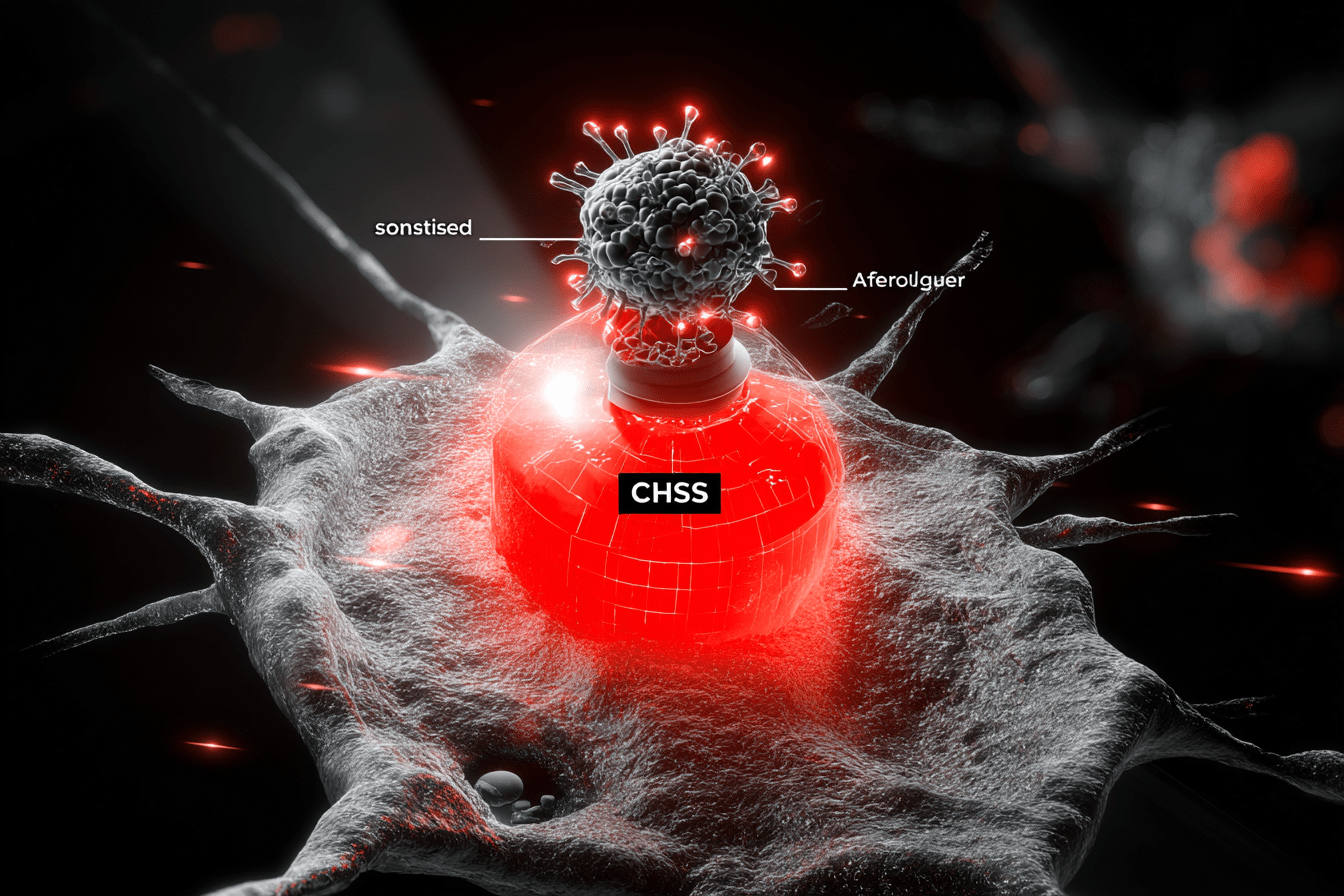- Home
- CHS Research
- Is Cannabinoid Hyperemesis Syndrome (CHS) Permanent?

Is Cannabinoid Hyperemesis Syndrome (CHS) Permanent? Unpacking the Long-Term Picture
You've battled the beast that is Cannabinoid Hyperemesis Syndrome (CHS). You know the drill: the seemingly endless waves of nausea, the uncontrollable vomiting, the weird solace found only under scalding hot water. After going through that, one burning question often surfaces: "Will this ever truly go away? Is CHS permanent?"
It's a question loaded with anxiety, and the answer is a bit nuanced. Let's break it down into two parts: are the symptoms permanent, and is the condition itself (your body's reaction to cannabis) permanent?
Good News First: Are the Symptoms of CHS Permanent?
Let's start with the most immediate concern: the awful symptoms. Generally, no, the active symptoms of CHS (the nausea, vomiting, abdominal pain) are NOT permanent if you stop using cannabis.
This is the crucial takeaway. When someone with CHS completely stops consuming all forms of cannabis (flower, edibles, vapes, concentrates – everything), the body begins the CHS recovery process. Over days, weeks, or sometimes a few months, the hyperemetic episodes cease, the nausea subsides, appetite returns, and that compulsive need for hot showers disappears.
So, if you're currently suffering, know that relief is possible. The misery doesn't have to be your permanent state, but it hinges entirely on removing the trigger: cannabis.
The Catch: Is the Susceptibility to CHS Permanent?
This is where the answer gets more complex and leans towards yes, the susceptibility likely IS permanent or at least very long-lasting.
Think of it like developing a specific type of intolerance or sensitivity. Once your body has developed the CHS reaction pattern due to chronic heavy cannabis use, it doesn't seem to forget. Even after a long period of abstinence and feeling completely recovered, reintroducing cannabis often triggers a CHS relapse.
- The Switch Seems Flipped: It appears that long-term cannabis exposure permanently (or semi-permanently) alters how your endocannabinoid system (ECS) and related receptors (like TRPV1) respond to cannabinoids. The system becomes dysregulated in a way that doesn't easily reset back to its pre-CHS state.
- Relapse is Common: Many people who have recovered from CHS report that even minimal cannabis use (a single puff, a small edible) after months or years of abstinence can bring the symptoms roaring back, sometimes much faster than they developed initially.
- Lower Threshold: It seems the threshold for triggering symptoms becomes much lower after you've had CHS once.
So, while you won't likely be actively sick forever if you abstain, your body's underlying negative reaction to cannabis probably remains. Permanent CHS in this context means a permanent need to avoid cannabis to remain symptom-free.
Are There Other Permanent Long-Term Effects of CHS?
Besides the ongoing susceptibility, are there other permanent health effects from having CHS?
Usually, the direct complications of CHS are related to the severe vomiting episodes themselves, rather than being a permanent state caused by the syndrome after cessation. These can include:
- Dehydration and Electrolyte Imbalances: Severe during episodes, but reversible with treatment and stopping vomiting.
- Kidney Issues: Acute kidney injury can occur due to severe dehydration but often resolves with hydration and recovery. Chronic kidney problems are less common unless episodes are extremely frequent and prolonged without adequate care.
- Esophagitis or Mallory-Weiss Tears: Inflammation or tears in the esophagus from forceful vomiting. These typically heal once the vomiting stops.
- Weight Loss and Malnutrition: Reversible once appetite returns during recovery.
The most significant long-term effect of CHS is the persistent need to avoid cannabis to prevent recurrence. There isn't strong evidence to suggest that CHS itself causes permanent organ damage after you've recovered and stopped using cannabis, provided acute episodes were managed properly.
Managing the "Permanent" Aspect: Living with CHS Susceptibility
Understanding that the susceptibility is likely permanent empowers you to manage the condition effectively. The management strategy is straightforward, though not always easy:
- Complete Cannabis Abstinence: This remains the cornerstone of preventing CHS symptoms from returning.
- Awareness and Education: Knowing your trigger is crucial. Educating friends and family can also help create a supportive environment.
- Focus on Recovery: Celebrate regaining your health and freedom from the symptoms.
The Takeaway: Symptoms Resolve, Sensitivity Remains
So, is CHS permanent?
- The debilitating symptoms? No, they typically resolve completely with cannabis cessation.
- The underlying susceptibility or sensitivity to cannabis triggering those symptoms? Yes, this appears to be a long-lasting or permanent change for most people.
The good news is that you can live a healthy, symptom-free life after CHS. It requires accepting that cannabis can no longer be part of that life. While that might be a difficult adjustment, reclaiming your well-being and escaping the cycle of sickness is a powerful motivator.
Have you experienced a CHS relapse after trying cannabis again? What are your thoughts on the long-term nature of CHS? Share your journey in the comments – your experience matters!
